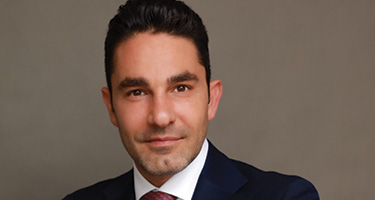Lunenburg County, Nova Scotia, was shocked by sexual abuse allegations made against a male employee at Pentz Elementary School earlier this year. The allegations, which date back to late October 2023, have resulted in the employee’s absence and are currently under investigation by the Nova Scotia Royal Canadian Mounted Police (RCMP).
Since beginning their investigations, the RCMP have uncovered more victims in what has become one of the most extensive investigations of its kind in Nova Scotia in recent years.
Read on to find out what to do in cases of sexual and institutional abuse, and what legal routes are available to gain compensation and bring perpetrators to justice.
What is Sexual Abuse?
Sexual abuse constitutes any sexual activity that occurs without consent. In most cases, the victims know the perpetrators, with the assaulter often using violence, physical force, coercion, or threats to take advantage of their victims. Usually, assaults are perpetrated by people in positions of authority, taking advantage of vulnerable people and leaving their victims with feelings of anxiety, depression and symptoms of PTSD.
These occurrences of sexual abuse are often institutional, often taking place within the workplace, a place of education, or a religious institution.
In Nova Scotia, only one in 10 cases of sexual assault are reported to the police. This means that over 88% of sexual abuse survivors suffer in silence, meaning the overwhelming majority of perpetrators do not face criminal charges.
Institutions and Sexual Abuse
Victims of sexual abuse often face lifelong repercussions owing to the trauma of being assaulted. For those abused during childhood, the resultant trauma could affect their ability to form healthy interpersonal relationships for the rest of their lives, enormously affecting their quality of life.
Institutional sexual abuse involves a position in authority or trust engaging in unwanted sexual activity with individuals in their care or charge. Organizations that facilitate disregard this behavior or fail to prevent or address occurrences of sexual abuse adequately can be liable for creating conditions in which the abuse can continue.
Many victims of institutionalized sexual abuse are vulnerable, such as children, individuals with mental health issues or physical disabilities, inmates in prison or correctional facilities, young people and vulnerable women.
Nova Scotia law considers that institutional abuse may be perpetrated by:
- Educational institutions, such as schools and colleges
- Sports clubs
- Summer camps
- Correctional facilities
- Hospitals and other healthcare facilities
- Churches and other religious organizations
- Governmental organizations
Legal Options
Wagners Law Firm has a team of highly qualified, trusted and compassionate lawyers who have worked closely with victims of institutional sexual abuse and who understand how difficult it can be for survivors to come forward.
Lawyers working on sexual and institutional abuse cases work closely with survivors to explain their legal options while also providing the close emotional support and assistance required to fight for the compensation they deserve and help bring abusers to justice. All information shared by survivors is strictly used in confidence to bring individuals and organizations to justice.
The best legal route depends on the specifics of each case. Experienced lawyers will evaluate each case on their specific merits and advise on the best legal option to help survivors gain the compensation they deserve to help them recover from their traumatic experience.
These options include:
Filing Criminal Charges
Taking this option will not result in receiving damages or financial compensation. The authorities will investigate, and if there is sufficient evidence, the perpetrators will be arrested, charged and face trial. If found guilty, the defendant is likely to face imprisonment.
The burden of proof required to win criminal cases is much higher than in civil actions, as the defendant must be proven guilty beyond a reasonable doubt. Sadly, only one in fifteen cases of reported sexual abuse in Canada results in the defendant going to prison.
Class Action Lawsuit
A class action lawsuit sees several survivors come together to collectively file a lawsuit against a perpetrator or institution that facilitated the environment for the abuse to take place.
By holding institutions accountable for the long-term effects of the abuse suffered, survivors may be able to recover costs for damages related to the emotional and physical distress suffered as a result of the assault while helping cover psychological treatment, loss of earning potential, or unfinished studies.
In addition, class action lawsuits protect the privacy and identity of their members, allowing the claim to be resolved sensitively. This, along with the solidarity of pursuing claims with other survivors, can be empowering in holding institutions and individuals accountable for causing trauma.
Civil Lawsuit
Pursuing a civil lawsuit sees lawyers take the assailant to a civil court to make them pay financial compensation to assist the survivor in recovering from the abuse.
Like class action lawsuits, civil actions are easier to win as verdicts are determined by weighing a balance of probabilities. Damages can be gained for:
- Emotional and psychological trauma
- Mental anguish
- Physical injury
- Spiritual harm
- Punitive damages
Gaining Compensation
No amount of financial money can eliminate the pain and suffering caused by sexual abuse. However, successfully pursuing a claim against assailants can have many positive outcomes.
While the money received can help you recover from the abuse, help you obtain the psychological support you need to process the trauma and pay medical costs, holding the abuser or institution to account enables you to restore a sense of dignity. In addition, your case could help other victims of institutional and sexual abuse gain the confidence to come forward.
Many factors determine the amount of compensation you deserve. These include:
- How the abuse affects your ability to support yourself and earn an income
- The type of treatment you require
- The individual circumstances of your case
At Wagners Serious Injury Law Firm, we’ve worked with survivors of sexual or institutional abuse and understand how difficult it can be for many to share their experiences. If you, or someone you know, has suffered sexual or institutional abuse, knowing your legal rights is one of the first steps in helping to process the trauma and ensure you receive full and fair compensation.






























